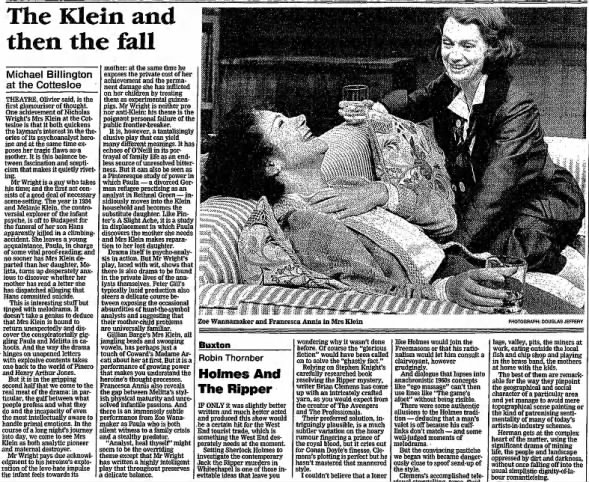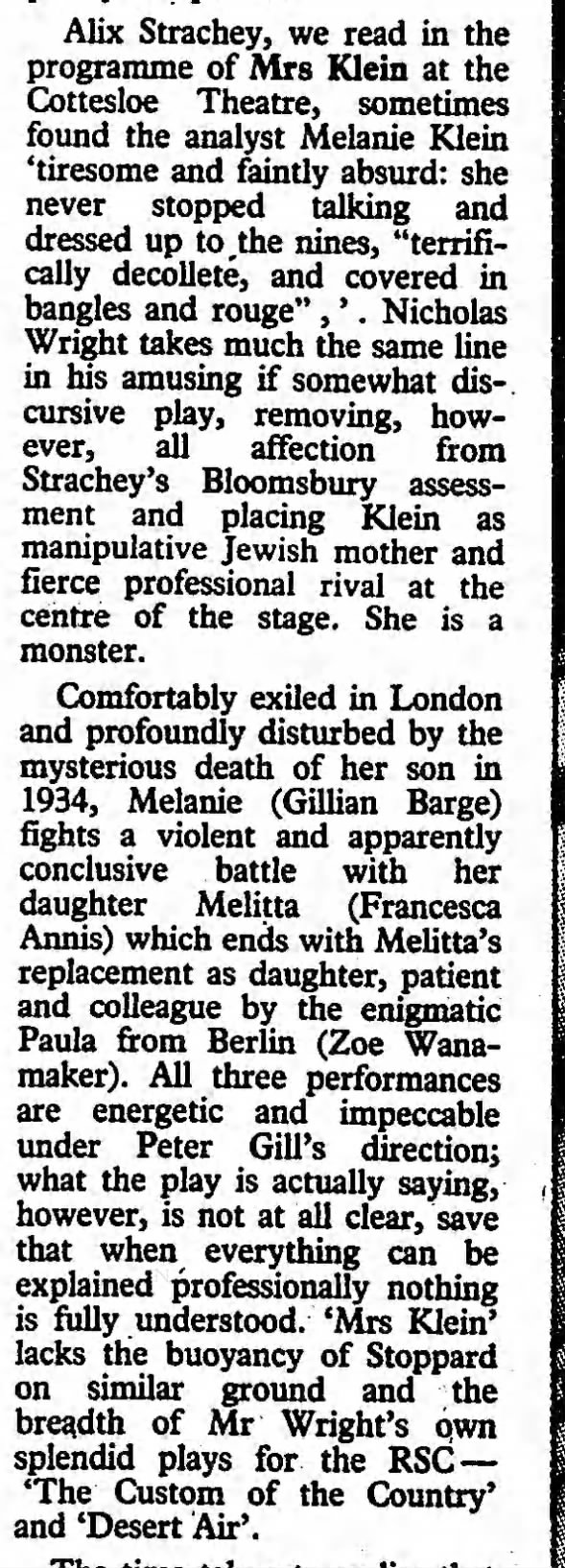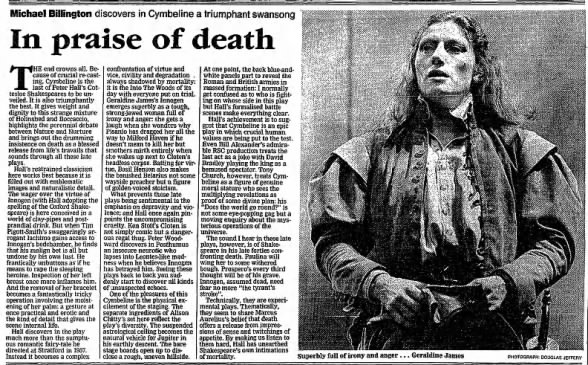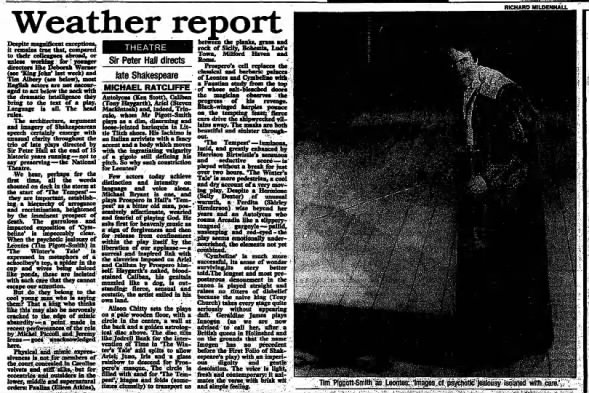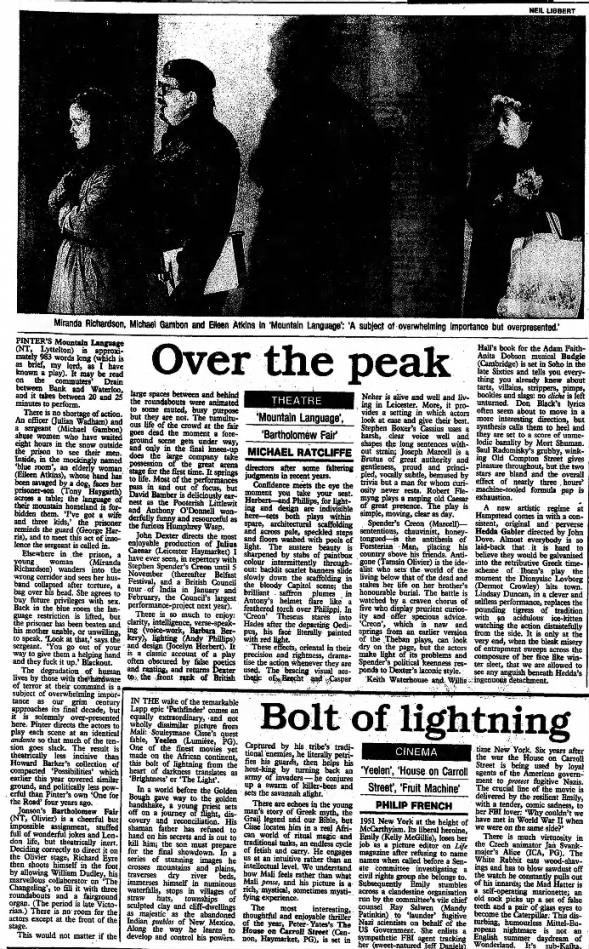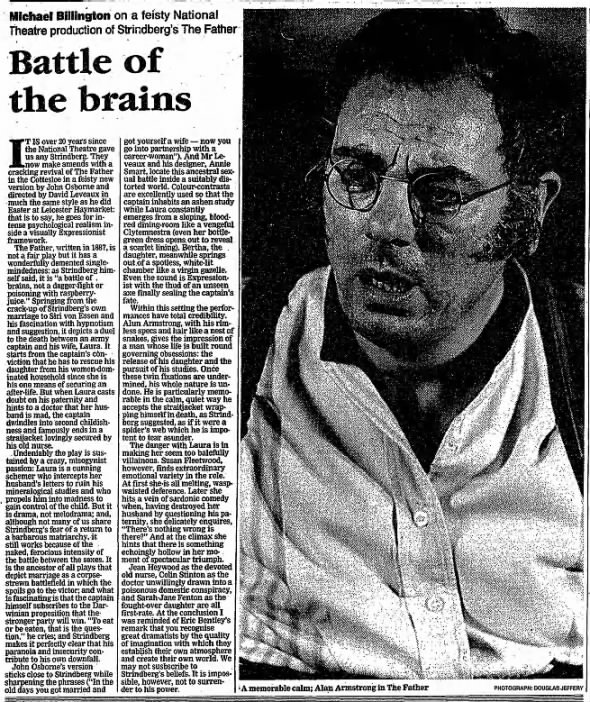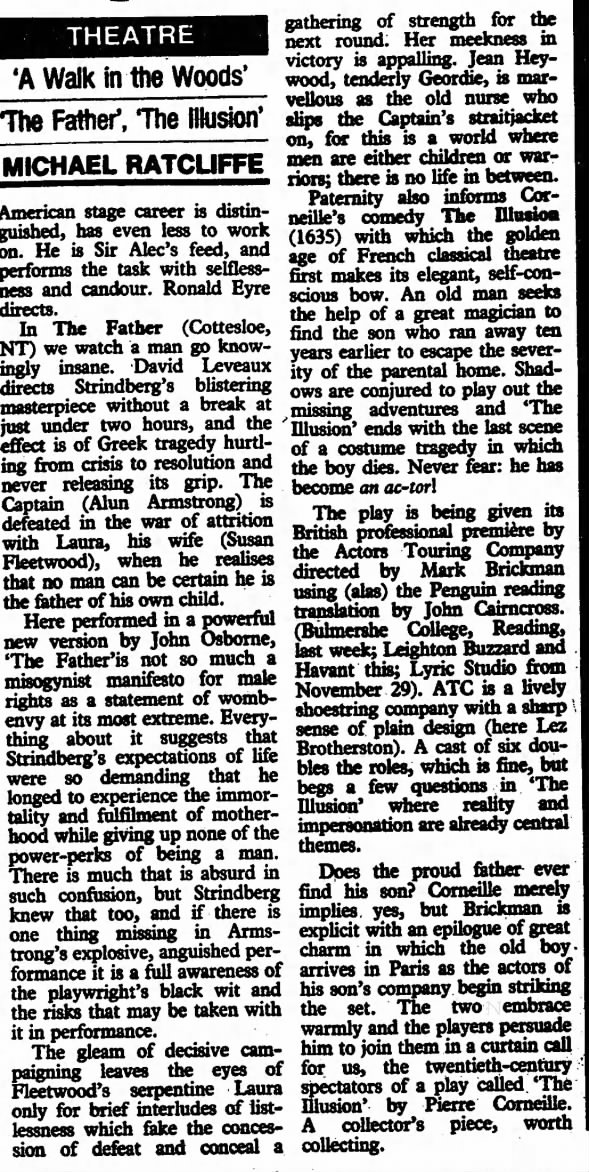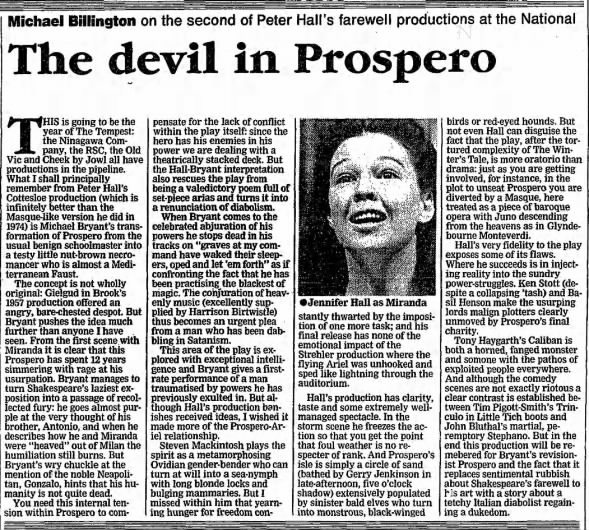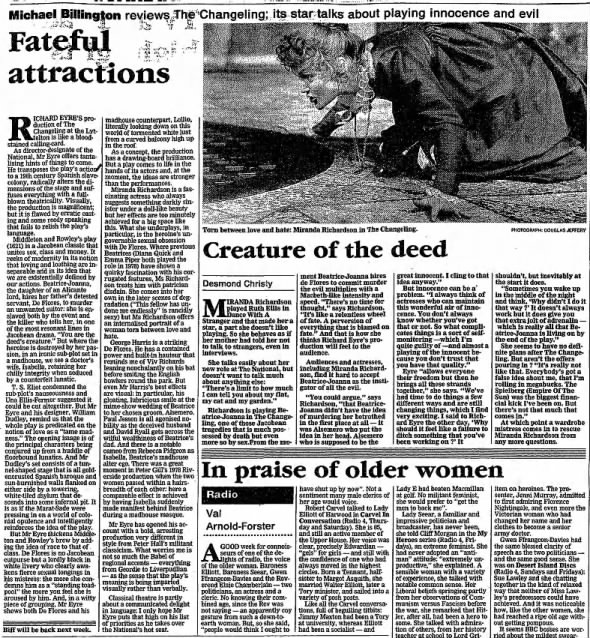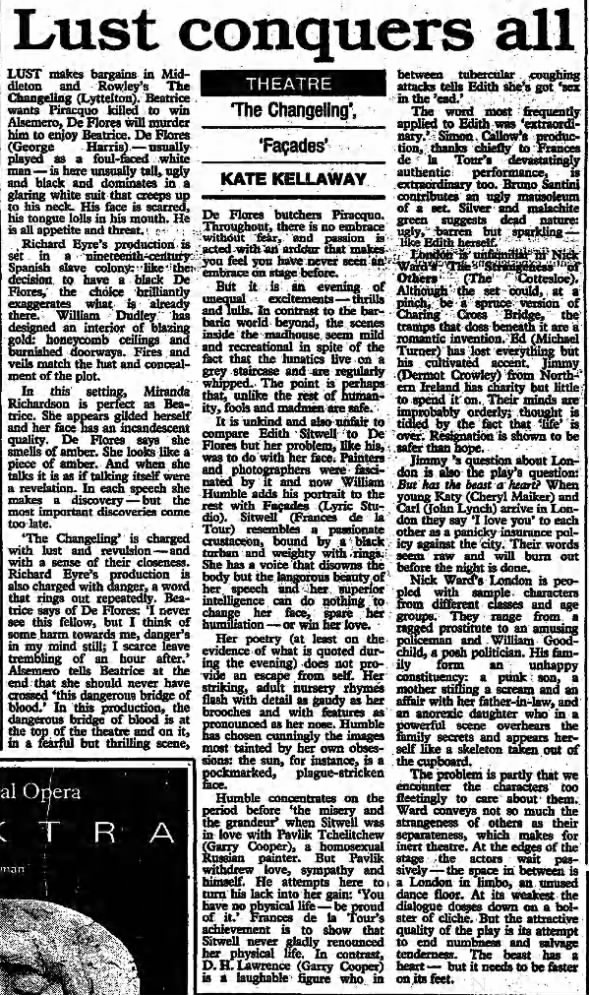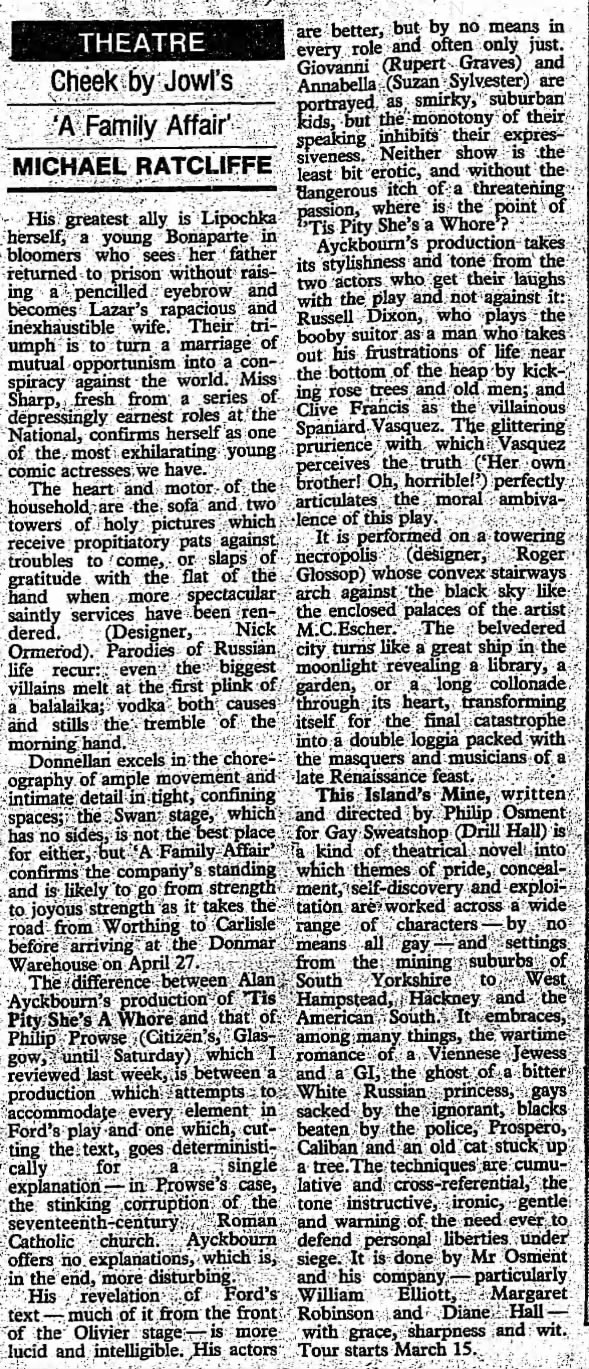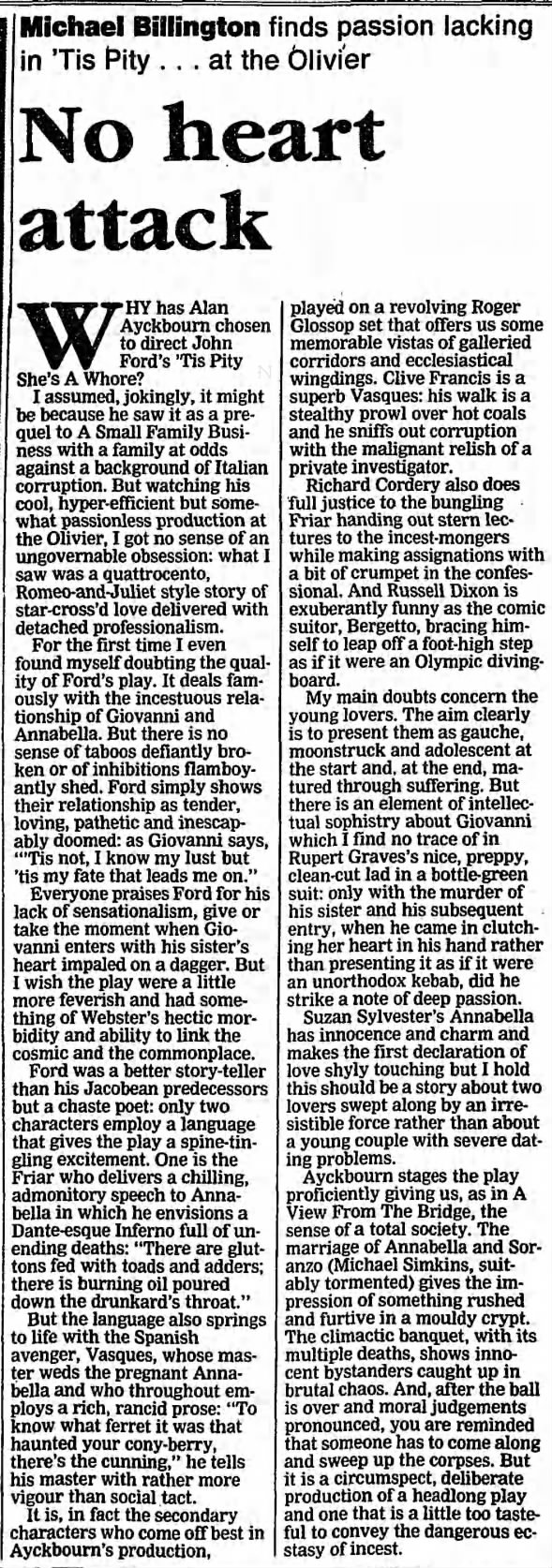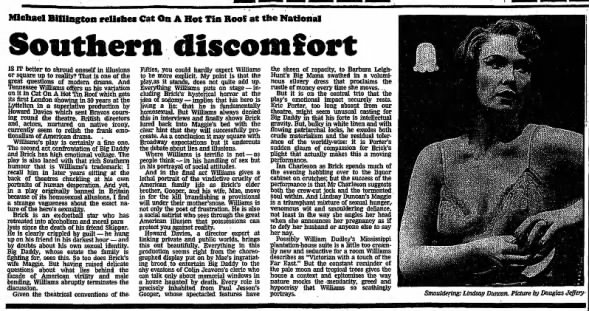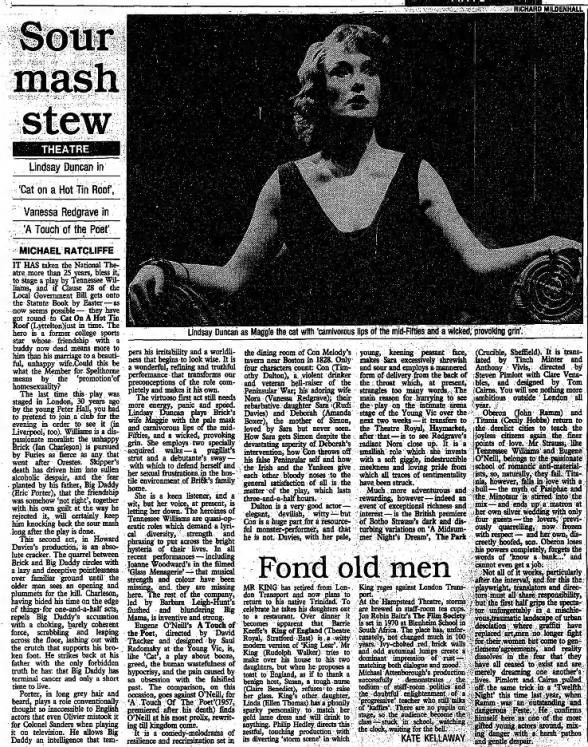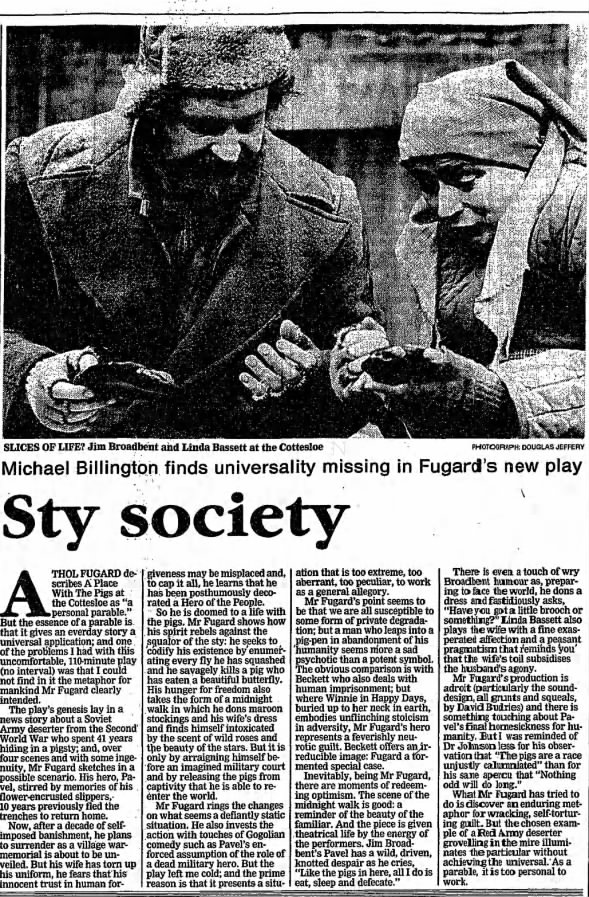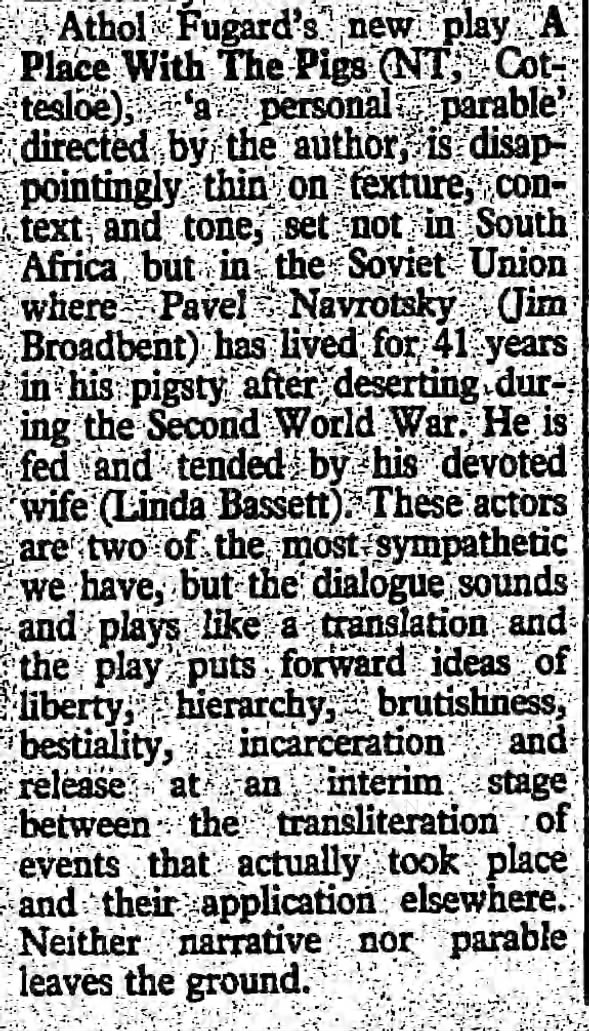
Celebrated clinching the deal for the flat with Bobbie on the Friday evening, starting with an early evening visit to the National Theatre to see a platform talk about Kenneth Tynan. I think those Platform things were a new idea that autumn…an idea that is now more than 30 years old. Our first one had been Tony Sher some weeks earlier.
This Kenneth Tynan one was in the Cottesloe and was a really interesting, varied panel: Adrian Mitchell, Jonathan Miller, Edward Petherbridge, Kathleen Tynan and Irving Wardle.
As the diary says (if you can read it) we went on to the Archduke afterwards for dinner.
On the Saturday I collected the keys to Clanricarde Gardens and did some shopping. I remember spending more than a few bob in Tylers (which was up on Westbourne Grove back then) – I probably still have one or two of the items I bought that day – I’m pretty sure I am still on my first clothes horse, for example.
I also bought food for the Sunday, but the crowd that visited that day – John, Mandy, Ali Dabbs, Valerie and Bobbie would all have traipsed to Woodfield Avenue for that meal – I must have shlepped the grub from Notting Hill to Streatham Hill on the Saturday evening – the new flat was not yet fit for habitation.
What did I cook that day? Can’t remember. Bound to have been Chinese and/or South-East Asian food though…just possibly Southern Asian for that crowd. It would have been good, whatever it was, though I say so myself. I must have been knackered by the Sunday, though. What a week it had been.



